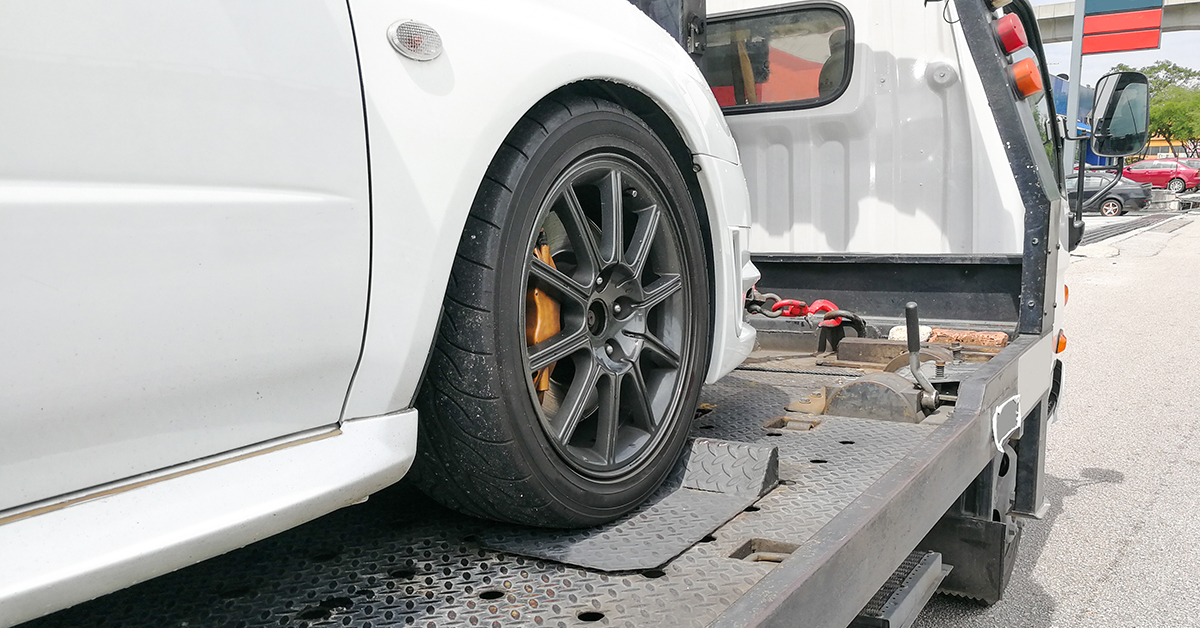
Illegal or wrongful car repossession typically means that your lender or the repo agent didn’t follow the proper procedures for repossession your vehicle. Learning about the rights and wrongs of vehicle repossessions can help you determine whether your car was illegally repossessed. Both the repo agent and the lender must follow the rules. Whether or not you missed payments, borrowers have rights against the lender and repo agent when a car, truck, motorcycle, boat or RV is repossessed.
 It’s often a tense encounter when the repossession agent shows up to take your vehicle. However, they may not become aggressive or threaten you.
It’s often a tense encounter when the repossession agent shows up to take your vehicle. However, they may not become aggressive or threaten you.
Repo Agents May Not
- Use physical force – or threaten to use physical force – when taking possession of your car
- They can’t damage your car or your property during the repossession
- They can’t come into your home without your invitation
- They can’t enter your closed garage to get access to your car
- If the police are on the scene, the repo agent can’t have them threaten to arrest you or make them order you to turn over your keys
 If a repo agent over steps his bounds, your consumer rights may have been violated. Document the repossession by taking photos or a video of the scene, get statements from witnesses, and create a written statement of events.
If a repo agent over steps his bounds, your consumer rights may have been violated. Document the repossession by taking photos or a video of the scene, get statements from witnesses, and create a written statement of events.
The Lender Must
 Borrowers are responsible for making payments to the bank, credit union or finance company in full and on time. If you default on the terms of your loan agreement, the lender can repossess it. After a vehicle has been repossessed, the lender is required to send specific notices to the borrower.
Borrowers are responsible for making payments to the bank, credit union or finance company in full and on time. If you default on the terms of your loan agreement, the lender can repossess it. After a vehicle has been repossessed, the lender is required to send specific notices to the borrower.
Notice of Intent to Sell Property
After repossession, a letter called a Notice of Intent to Sell Property will be sent to the borrower stating:
- The outstanding balance
- The amount required to recover the vehicle
- The location of the vehicle so that you can recover any personal belongings
- The time you have to act before the vehicle is sold at a private sale or auction
In some cases, the lender might allow the borrower to reinstate the loan by making past due payments. Other times, the lender may demand payment of the entire loan balance for you to get the car back. Either way, your lender must send a letter that states the terms that apply to you.
Deficiency Notice
After your vehicle is sold at a private sale or auction, the lender will send a notice called a Deficiency Letter which tells the borrower the selling price of the car, repossession and storage fees, and calculates any remaining balance that may be owed on the loan.
Should you ask yourself , “What can I do if my car was illegally repossessed?”, gather these documents along with a copy of your signed loan agreement, which may be called a Retail Installment Sales Contract, and contact a qualified consumer protection law firm to evaluate whether your consumer rights were violated.
Seek Legal Help
Flitter Milz is a nationally-recognized consumer protection law firm that represents people who have had a car, truck, motorcycle, RV or boat illegally repossessed. Contact us today for a free consultation. We will fight for you!








